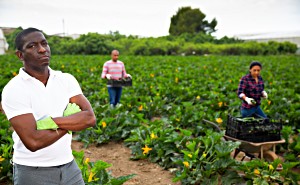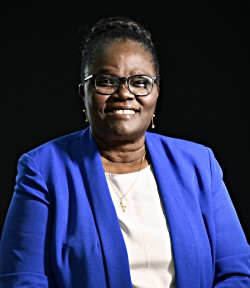PRINCESS ANNE, MD-(October 27, 2021)- The U.S. Department of Agriculture’s Agricultural Marketing Service has enlisted the help of the University of Maryland Eastern Shore and Florida Agricultural and Mechanical University to help Black, indigenous and people of color, rural and other underserved communities apply for, successfully compete for and implement its grants. The two institutions will split an award totaling $2.7 million ($1,350,000 each) in a coordinated effort that will enable UMES to conduct activities in the Northern states, FAMU to conduct activities in the Southern states.

Grant programs funded through USDA AMS are “designed to support the economic development for communities and commodities by funding projects that enhance the marketability and competitiveness of U.S. agricultural products.” To achieve this goal, all agricultural producers in the nation, regardless of race and ethnicity, need to have knowledge of, access to and a desire to take advantage of federal grants that are available to them.
“This critical partnership will enable AMS to better support historically underserved farmers, ranchers, fishers and agricultural businesses by assessing their challenges and creating a support network. As a part of USDA’s commitment to equity in all that we do, this agreement will build strong relationships and broaden our ability to serve diverse communities, ensuring inclusive access to vital programs,” said Jenny Moffit, USDA Under Secretary for Marketing and Regulatory Programs.
“The University of Maryland Eastern Shore is honored and humbled to be entrusted with this paramount task,” said Dr. Heidi M. Anderson, UMES President. “Our mission as an 1890 land-grant institution aligns closely with the USDA AMS’ goals to understand the challenges and barriers faced by Black, Hispanic and others of color and to satisfy those needs. Indeed, our UMES Extension specialists are uniquely qualified to carry out research and education through its diverse programs for the betterment of the community it serves, particularly the underserved.”
Through this cooperative research agreement, UMES, FAMU and USDA will work together to conduct listening sessions and other data collection efforts, publish findings and recommendations, create and lead training for grantees on how to submit successful applications, develop a more inclusive and diverse grant review panel and work to further rectify potential inequalities in program access.
“When federal grants are open, farmers that are Black, indigenous or are people of color are not successfully competing for them,” said Dr. Virginie Zoumenou, director of UMES Extension’s Nutrition and Health Program and the lead for the project at UMES. “Research is needed to understand why they are not applying, why they are not being awarded grants that are available to them and what their needs are to successfully implement programs when awarded.”
“The overarching goal is to build trust and confidence between the USDA AMS and these targeted communities that could benefit from available grant funds and to engage them in finding solutions and strategies needed to improve the process,” Zoumenou said. “Grant awardees should represent the diverse makeup of America.”

University of Maryland Eastern Shore, School of Agricultural and Natural Sciences, UMES Extension.
Gail Stephens, agricultural communications and media associate, University of Maryland Eastern Shore, School of Agricultural and Natural Sciences, UMES Extension, gcstephens@umes.edu, 410-621-3850.

